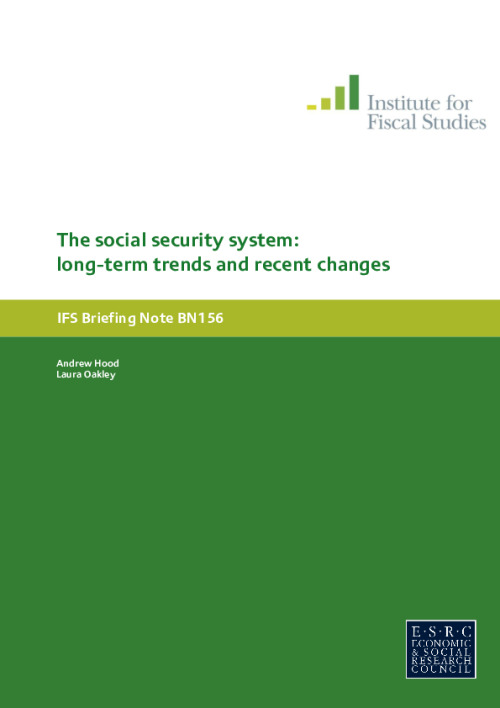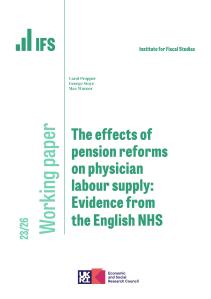The British welfare state has changed dramatically in size and shape over the 70 years since the Beveridge Report. The share of national income spent on social security has increased more than threefold, from around 4% of national income in 1948–49 to nearly 13% in 2013–14. Spending on social security now makes up around 30% of total government expenditure. And having started with a focus on the old, ill and unemployed, the system now also supports the incomes of many low-income working families, particularly those with children. In addition to these long-run trends, the welfare state has undergone a significant reshaping in recent years, as a result of the fiscal consolidation. By the end of the parliament, reforms introduced by the current government will have reduced social security spending on those of working age by around £20 billion a year (relative to estimated spending on an unreformed system) while leaving pensioners broadly unaffected. This briefing note describes both long run trends and more recent changes, providing an overview of the evolution of the British benefits system over the last half-century.









